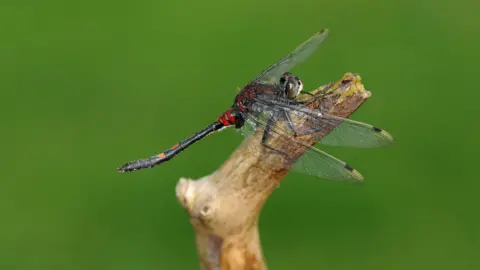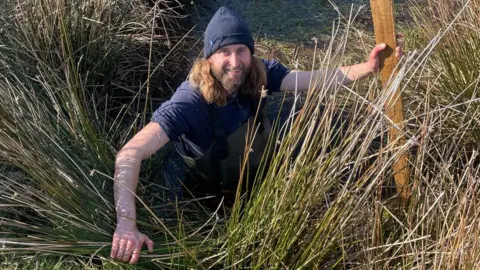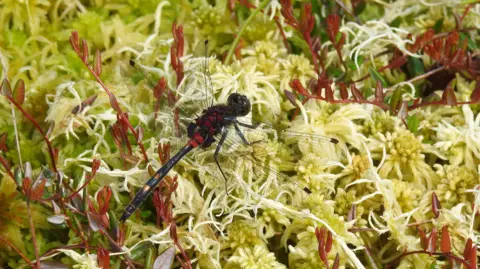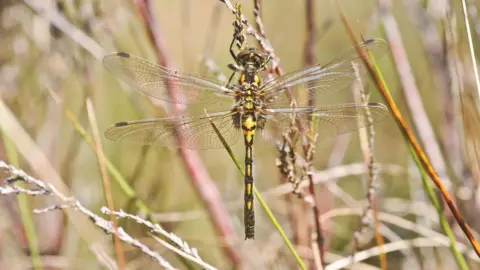Rare dragonflies spotted as reserve awarded title
 David Morris
David MorrisA nature reserve has been named as the UK's newest dragonfly hotspot as two rare species have been spotted at the site.
The white-faced darter, a rare dragonfly, was introduced to RSPB Campfield Marsh in Wigton in April and it is hoped there will be breeding pairs in summer.
The British Dragonfly Society designated it to become the 12th hotspot in the UK, saying it had "amazing habitat management" with deep bog pools which "should provide the perfect conditions for the species to thrive".
RSPB Cumbria Coast reserve warden, Dan Cropper, who recorded two male white-faced darter at the site recently, said the recognition was a "testament to the health of our peat bogs".
The white-faced darter, named for its distinctive chalk-white profile, has seen its numbers severely decline in England where it only exists in a handful of sites.
Mr Cropper said he had recently recorded seeing two males on site but no females yet.
 RSPB
RSPB"It would be amazing to see female dragonflies dipping their tails into the water and releasing their eggs.
"This would mean that our site could be a provider to save the species."
Dragonfly hotspots are chosen because they are "fantastic places" for the insects to thrive and are easily accessible, according to the society.
 Ian Preston
Ian PrestonConservation officer for the British Dragonfly Society, Eleanor Colver, said the white-faced darter was "vulnerable to extinction".
"Thanks to the amazing habitat management work of the RSPB, the peat wetland at Campfield Marsh, with its deep bog pools, should provide the perfect conditions for the species to thrive," she added.
Mr Cropper said: "Cumbria is an English stronghold for the white-faced darter and we're really lucky to have the dragonfly here."
He added Campfield Marsh was a "nice mosaic of different habitats - salt marsh, wet grassland and peat bogs - which provides different habitats for our 13 species of dragonfly".
 David Morris
David Morris"The dragonfly hotspot title demonstrates the importance of the site and will hopefully engage people to come and take interest in the insects.
"We are tucked away up here so it's important for the site to have recognition," he added.
An event to celebrate the title will be held at the site on 5 July which will include guided dragonfly walks and pond dipping.
